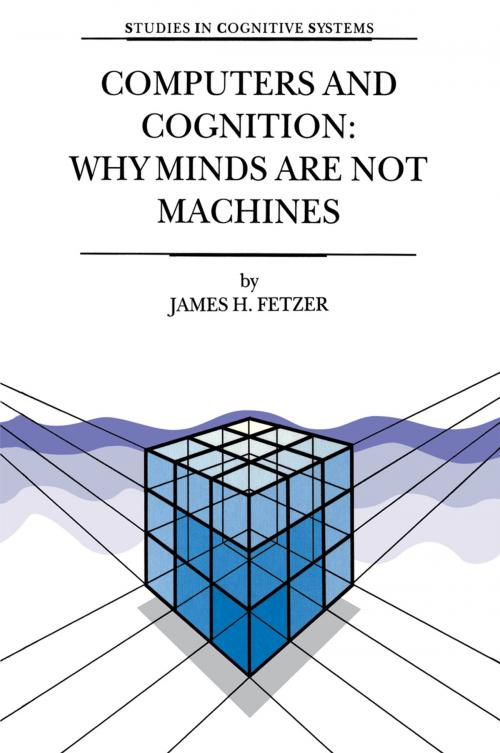Computers and Cognition: Why Minds are not Machines
Nonfiction, Computers, Advanced Computing, Artificial Intelligence, Religion & Spirituality, Philosophy, Mind & Body, General Computing| Author: | J.H. Fetzer | ISBN: | 9789401009737 |
| Publisher: | Springer Netherlands | Publication: | March 7, 2013 |
| Imprint: | Springer | Language: | English |
| Author: | J.H. Fetzer |
| ISBN: | 9789401009737 |
| Publisher: | Springer Netherlands |
| Publication: | March 7, 2013 |
| Imprint: | Springer |
| Language: | English |
An important collection of studies providing a fresh and original perspective on the nature of mind, including thoughtful and detailed arguments that explain why the prevailing paradigm - the computational conception of language and mentality - can no longer be sustained. An alternative approach is advanced, inspired by the work of Charles S. Peirce, according to which minds are sign-using (or `semiotic') systems, which in turn generates distinctions between different kinds of minds and overcomes problems that burden more familiar alternatives. Unlike conceptions of minds as machines, this novel approach has obvious evolutionary implications, where differences in semiotic abilities tend to distinguish the species. From this point of view, the scope and limits of computer and AI systems can be more adequately appraised and alternative accounts of consciousness and cognition can be more thoroughly criticised.
Readership: Intermediate and advanced students of computer science, AI, cognitive science, and all students of the philosophy of the mind.
An important collection of studies providing a fresh and original perspective on the nature of mind, including thoughtful and detailed arguments that explain why the prevailing paradigm - the computational conception of language and mentality - can no longer be sustained. An alternative approach is advanced, inspired by the work of Charles S. Peirce, according to which minds are sign-using (or `semiotic') systems, which in turn generates distinctions between different kinds of minds and overcomes problems that burden more familiar alternatives. Unlike conceptions of minds as machines, this novel approach has obvious evolutionary implications, where differences in semiotic abilities tend to distinguish the species. From this point of view, the scope and limits of computer and AI systems can be more adequately appraised and alternative accounts of consciousness and cognition can be more thoroughly criticised.
Readership: Intermediate and advanced students of computer science, AI, cognitive science, and all students of the philosophy of the mind.















